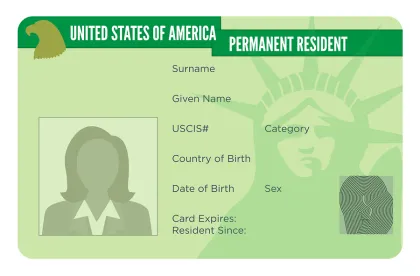On the night of Monday, April 20, 2020, the President tweeted that he would “protect” American jobs during the COVID-19 crisis by issuing an Executive Order that would “temporarily suspend immigration.” After several uncertain days of conflicting information, reported in the media, about how sweeping the scope of the order would be, it turns out to affect a very small subset of intending US immigrants: those who are outside the United States and will immigrate here by obtaining an immigrant visa.
On April 22, 2020, the White House issued the order, entitled “Proclamation Suspending Entry of Immigrants Who Present Risk to the U.S. Labor Market During the Economic Recovery Following the COVID-19 Outbreak.”
When does the suspension take effect and how long will it last?
The suspension takes effect at 11:59 p.m. Eastern Daylight Time on April 23, 2020, and will expire after 60 days, although provision is made for a possible extension.
Who does the suspension affect?
The proclamation suspends admission to the United States only for those who apply for and obtain immigrant visas at US embassies or consulates abroad during the next 60 days.
Are there any exceptions to the 60-day suspension for people with immigrant visas?
Yes. Those who have or obtain valid immigrant visas in their passports as of today will still be admitted. Those who have, or later obtain, other types of valid immigrant travel documents – such as permanent resident cards (“green cards”), advance paroles, boarding foils or transportation letters – will also be admitted during the 60-day suspension period.
In addition, the suspension does not apply to spouses, minor children and adoptees of US citizens; health care professionals; EB-5 investors; members of the military and their immediate family members; and several other national-interest categories. These individuals may still obtain immigrant visas and may still be admitted to the United States during the 60-day suspension period.
What is an “immigrant visa”?
People who are sponsored by family members or employers, as well as people in a handful of other categories that do not require sponsors, may immigrate from their home countries to the United States permanently after obtaining immigrant visas in their passports. In most cases, sponsors must first complete lengthy and difficult preliminary filing steps. Even after those steps are successful, most intending immigrants still have a years-long wait before they may apply for immigrant visas because, in most green card categories, the demand greatly outstrips the annual supply of visas and wait lists must be established.
Can sponsors still file the preliminary steps?
Yes. Family-based sponsors may still file Form I-130 with US Citizenship & Immigration Services, and employers may still file Form I-140. Employers may also continue filing PERM labor certification applications with the US Department of Labor in those green card categories that require that preliminary step. There is no suspension on all preliminary filing steps for all categories of green cards.
Can intending immigrants still be admitted with advance parole or refugee travel documents? Can permanent residents still be admitted with green cards or reentry permits?
Yes. Anyone who currently has – or later obtains – one of these valid travel documents will still be readmitted to the United States if otherwise eligible for admission. The proclamation has no impact on these types of admissions.
Can intending immigrants who are inside the United States still apply for green cards?
Yes. The proclamation does not apply to intending immigrants unless they are outside the United States as of the date and hour the proclamation takes effect and apply for an immigrant visa at a US consular post. This means people who are inside the United States and applying for adjustment of status are not affected.
What is “adjustment of status”?
When the required preliminary filing steps have been done, and a green card number is available in the individual’s specific category, an intending immigrant who is eligible to apply from within the United States files a Form I-485 Application To Adjust Status with USCIS. This is the final step of a green card process and is the domestic alternative to applying for an immigrant visa abroad. People who were lawfully admitted and have maintained valid US immigration status throughout their stay – with some exceptions – are eligible to file for adjustment without leaving the United States.
Can employers still sponsor nonimmigrants for temporary work-authorized status?
Yes. The proclamation has no effect whatsoever on any petitions or applications that are filed domestically with USCIS and processed by that agency. These filings include nonimmigrant petitions filed on Form I-129; immigrant petitions filed on Forms I-130, I-140 and I-360; change or extension of status applications filed on Form I-539; work and travel authorization applications filed on Forms I-765 and I‑131; and adjustment of status applications filed on Form I-485, as explained above.
Can nonimmigrants on temporary visas still be admitted?
Yes. The proclamation has no effect whatsoever on the admission of people who hold temporary nonimmigrant visas, such as B-1/B-2, E-1 and E-2, F-1, H-1B, L-1, O-1, P-1, and TN visas. Although US consular posts worldwide are still closed due to the COVID-19 pandemic, these nonimmigrants may also still apply for and obtain these nonimmigrant visas in their passports if consulates reopen during the 60‑day suspension period.
Are temporary visa programs at risk?
The proclamation directs the US Secretaries of Labor, Homeland Security and State to review these programs over the next 30 days and recommend “other measures” to “ensure the prioritization, hiring, and employment of United States workers.” What those measures might be is unknown at this time. Please subscribe to our blog for updates on any major developments.




 />i
/>i

